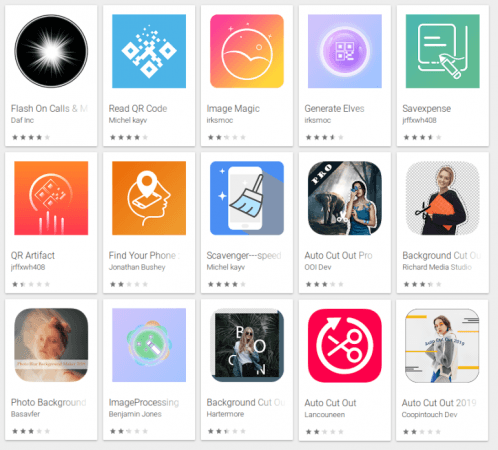Google's Play Store hosts an ocean of apps for various uses but it also harbours some malicious apps, for which Google has been called out for by cybersecurity firms and individuals. After much criticism, Google changed its vetting process before letting any app. But it looks like some have still managed to slip through the cracks, causing a nuisance to end-users.
Sophos, a British cybersecurity firm, discovered more than a dozen malicious apps in the Play Store. Google has since removed the apps, but it is up to the users to check the list of apps on their Android mobile device and uninstall them immediately. It is proving to be quite a task to spot these apps as they disguise themselves in the phone's app settings page and hide in the launcher.
Since Sophos has identified these malicious apps, Android smartphone users will be able to spot them and uninstall immediately. The effort is much needed as these apps generate fraudulent revenue for their developers through adware.

According to the research firm, these 15 apps discovered by Sophos have been installed on more than 1.3 million devices, which is a huge number. What's alarming is the fact that these malicious apps have appeared between January and July of 2019, which means they shouldn't have made it to the Play Store in the first place with Google's stringent vetting process in place.
Check out the list of dangerous Android apps followed by the package names to help users free their phones of malicious apps.
- Image Magic
- Generate Elves
- Savexpense
- QR Artifact
- Find your Phone
- Scavenger Speed
- Auto Cut Out Pro
- Read QR Code
- Flash on Calls & Msg
- Photo Background
- ImageProcessing
- Background Cut Out
- Background Cut Out (developed by Haltermore)
- Auto Cut Out
- Auto Cut Out 2019

Sophos also warns that there could be many such apps hiding in the Play Store and on users' phones that are yet to be discovered. The easiest way to get rid of malicious apps is to go to Settings > Apps and Notifications and then check for most recently opened apps. If you find any suspicious apps, force stop them and uninstall them right after. Since some of these apps disguise themselves as system apps, the best way to call out their bluff is to check if the option to uninstall is available. In the case of a real system app, there won't be an uninstall option, instead users can only disable it.
But the thumb rule of online privacy is to individually do due diligence before installing any free app that's out there. Even if you stick to Google Play Store, make sure you check for developer's credibility, go through app reviews, and most importantly don't install an app if you don't really need it.















